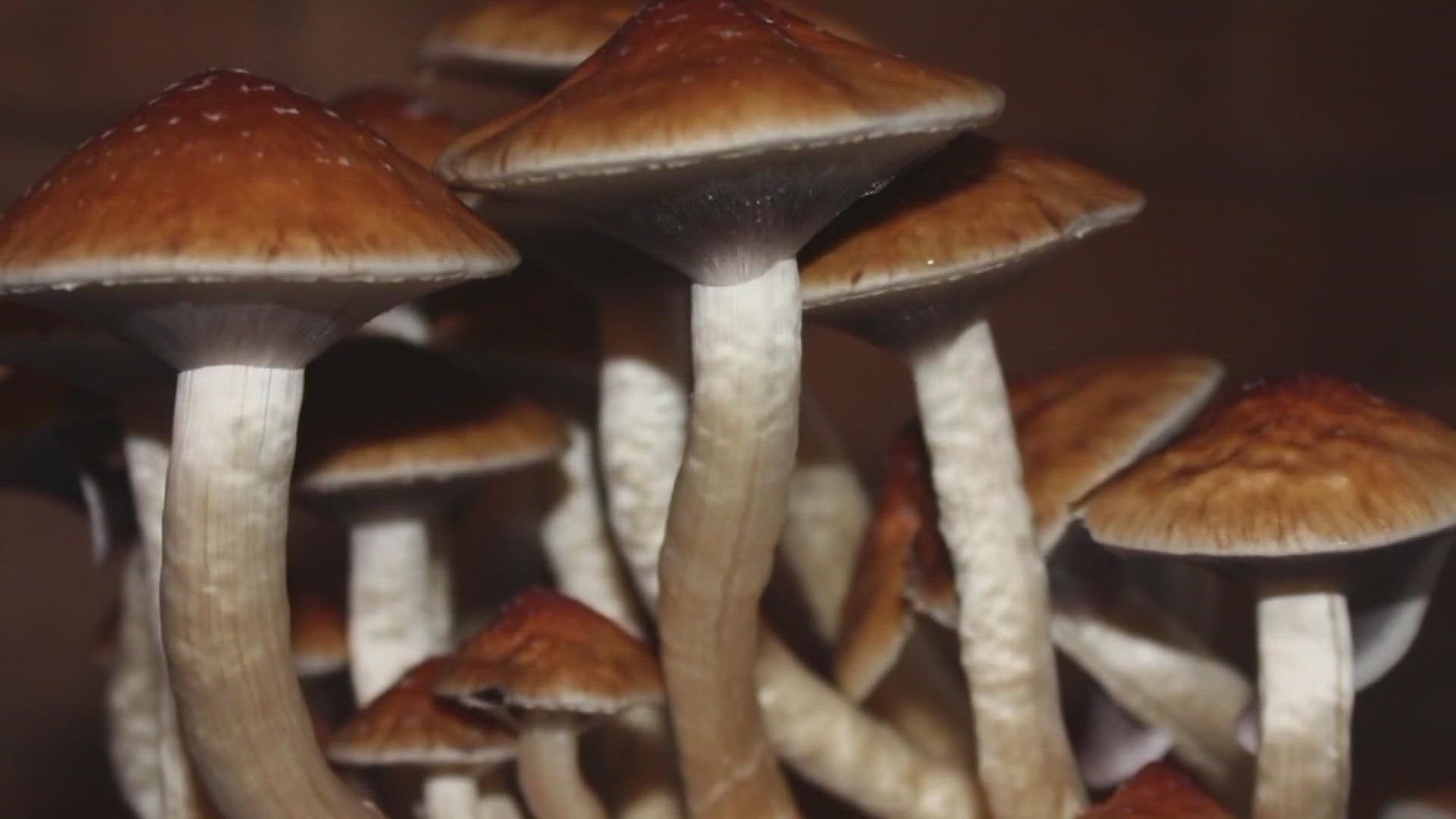GRAND RAPIDS, Mich. — There is growing support behind an effort to decriminalize psychedelic mushrooms and plants in West Michigan.
Decriminalize Nature GR, an advocacy group that sees potential for entheogenic plants and fungi to improve community health, pushed for the Grand Rapids City Commissioners to consider a resolution to affirm their beliefs.
At a meeting on Tuesday, the commissioners voted to affirm a resolution that declares "support for state and federal legislative efforts that would decriminalize entheogenic plants and fungi."
You can read the resolution here.
While this vote did not fully decriminalize mushrooms, it is a big step for decriminalization advocates.
"It affirmed the current practice of our police department that treats this as their very low priority," said Kurt Reppart, first ward commissioner.
Despite the vocalized support, these plants and mushrooms are still considered a Schedule I drug at the state and federal levels.
Commissioners said they also support ongoing low prioritization for regulating possession and use of the mushrooms. Local leaders also pointed out the resolution does not authorize criminal activity when it comes to the sale and distribution of the plants.
"To make sure that there's equitable access to these entheogenic plants and fungi," said Mary Reed Kelly, co-chair of DNGR, "and that people have a choice in how they treat their own illnesses or conditions."
DNGR said the point is not to make psychedelics legal. Rather, it's decriminalizing the use of them, especially for medicinal uses.
According to DNGR, the plants can help with depression, grief, PTSD, addiction, end-of-life support and more.
"So, what that means is that we're not fighting for the sale, the commercial sale of these medicines," said Chad Beyer, co-chair of DNGR. "We have a 'grow, gather, gift' model. And so, individuals should be able to grow on a small scale in their community, as well as share with their friends and loved ones."
This idea isn't new to Michigan.
In October 2020, Ann Arbor voted to decriminalized psychedelic mushrooms.
Psilocybin, the chemical that certain fresh or dried mushrooms contain, can cause hallucinations.
These types of mushrooms are typically found in Mexico, Central America and the United States. Some types of Psilocybin mushrooms grow wild in Michigan.
"Yeah, the tendency is to just kind of think about a psychedelic experience," said Reppart, "when we're really talking about a healing journey and working with professionals in order to accomplish that."
►Make it easy to keep up to date with more stories like this. Download the 13 ON YOUR SIDE app now.
Have a news tip? Email news@13onyourside.com, visit our Facebook page or Twitter. Subscribe to our YouTube channel.

